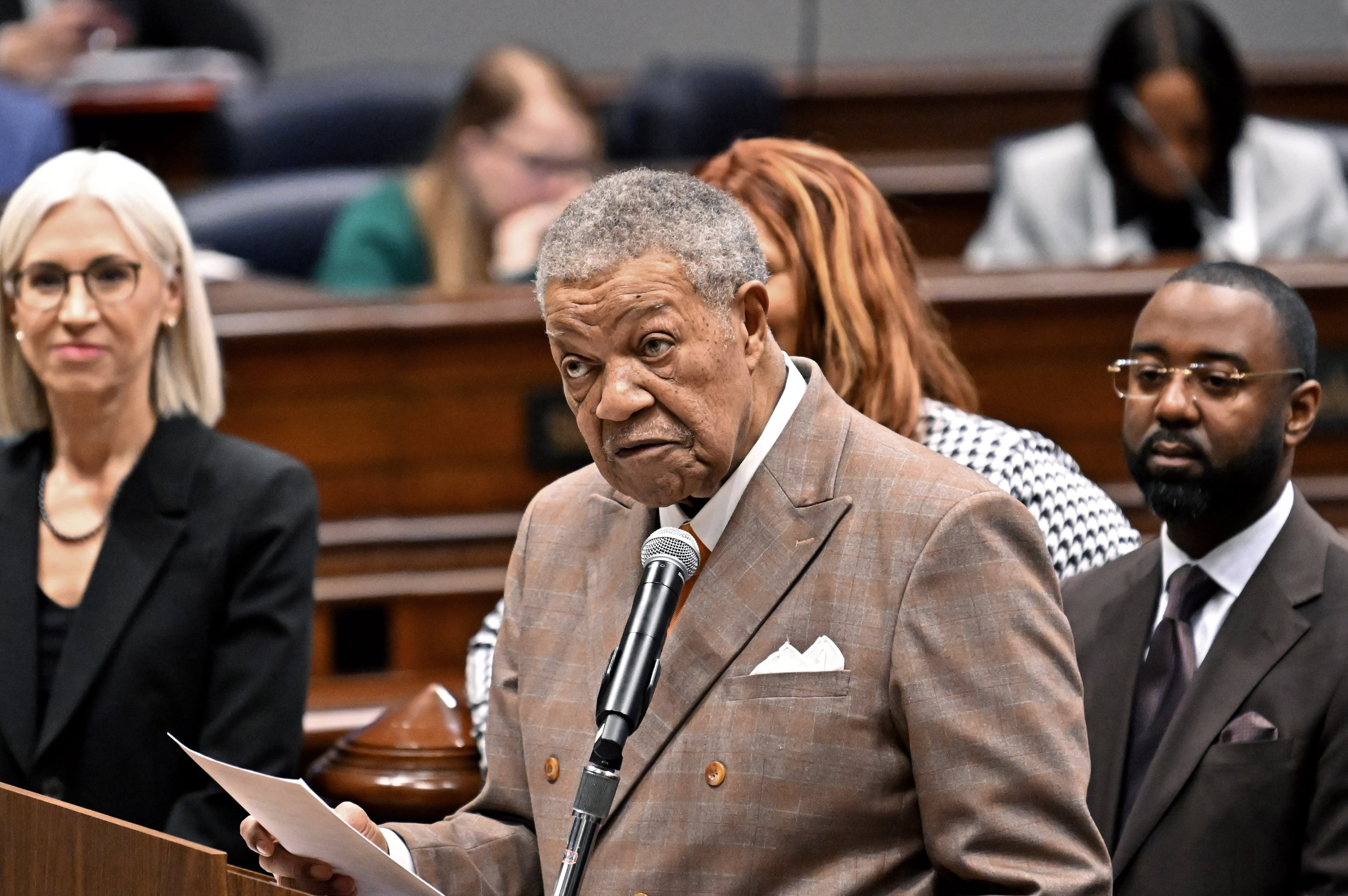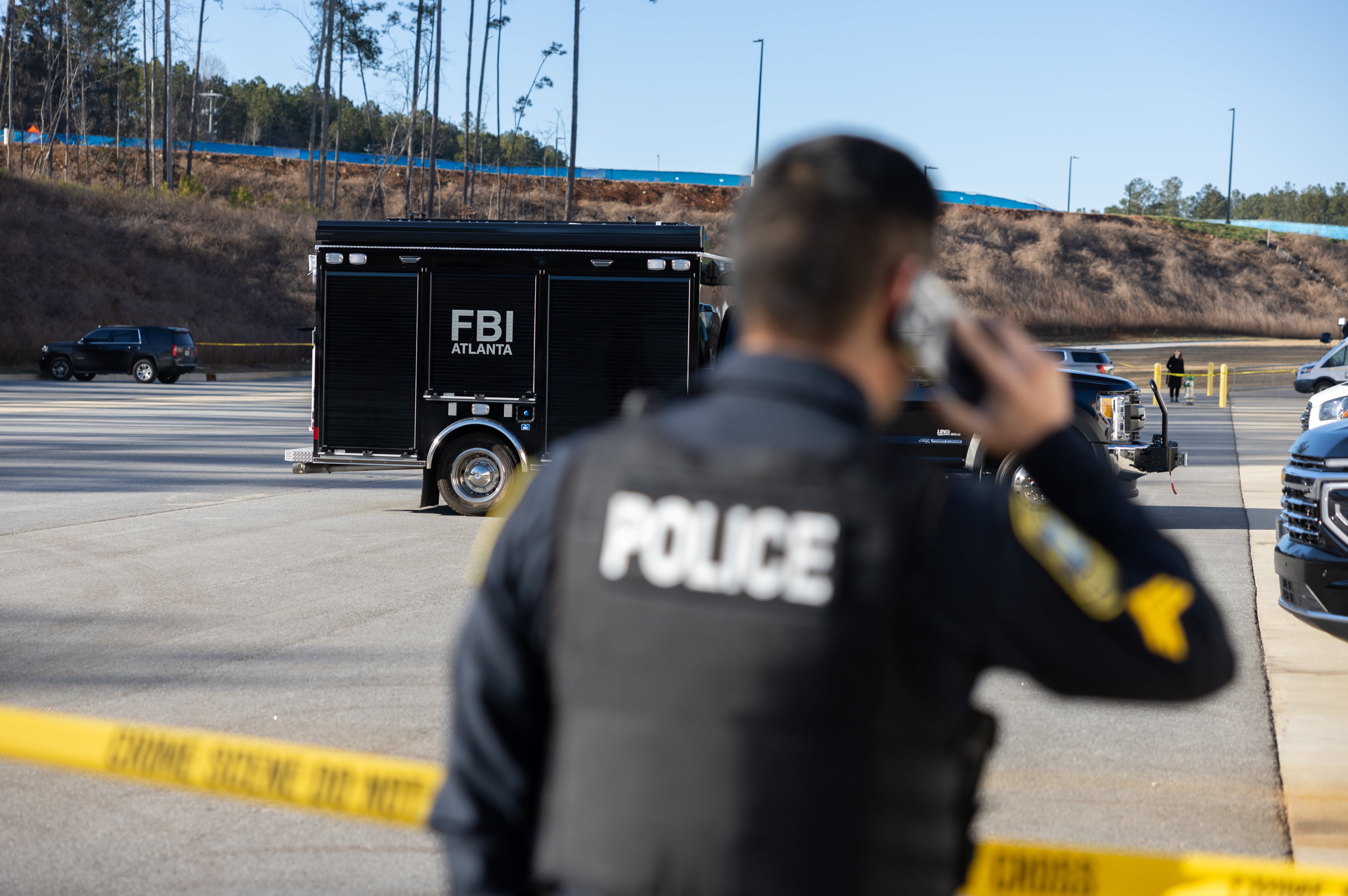Ralston proposes $1,000 bonus for local law enforcement, more police, mental health funding

Georgia House Speaker David Ralston is calling on the state to give local police and sheriffs’ employees a $1,000 bonus and increase funding for law enforcement and mental health programs.
Ralston, R-Blue Ridge, who has a House committee looking at the rise in violent crime over the past year, announced a $75 million funding package Wednesday during a Prosecuting Attorneys’ Council of Georgia conference on Jekyll Island.
He said it is aimed at supporting local law enforcement, going after criminals, and getting Georgians with mental health problems the treatment and services they need.
“We owe it to our communities to bolster law enforcement and mental health services in a time when some areas of our state are seeing a dramatic increase in crime and the number of individuals in need of mental health care,” Ralston said. “This proposal is one I am proud to offer and the House of Representatives will stand firmly behind when we consider it as part of our 2022 budget process.”
Gov. Brian Kemp this week announced he would include crime-fighting legislation in his call for a special session this fall. Lawmakers were already scheduled to return for a special session to redraw congressional and legislative district boundaries to conform to the 2020 Census.
Republicans have jumped on Atlanta’s rise in murders to make fighting violent crime a cornerstone of their 2022 election strategy up and down the ballot.
Ralston was a supporter of former Gov. Nathan Deal’s efforts to slow the growth in the prison population in Georgia through alternatives such as special courts aimed at giving more chances to those convicted of drug crimes.
But, like other state Republican leaders, he has expressed alarm at the rise in violent crime over the past year.
Atlanta had a historically deadly 2020, when authorities investigated 157 homicide cases — the most in more than two decades. This year, as of June, homicides had increased in Atlanta by more than 50% and shootings had increased by 40% compared to the same time period in 2020.
While Ralston said his proposal will be considered during the regular, 2022 session, it could come up earlier, during the fall special session if Kemp asks lawmakers consider it then.
After Ralston’s announcement, House Democratic Whip David Wilkerson, D-Powder Springs, said, “It’s about time that they are putting money into mental health and supporting local law enforcement.”
Wilkerson said Democrats have been talking about the possibility of using federal COVID-19 relief money to provide bonuses to local law enforcement, the same way the state-funded teacher and state employee bonuses. State budget officials say that may be a federally approved use of the funding.
Ralston said he wants the state to set aside $25 million for the effort. Local law enforcement agencies would apply for the money to give $1,000 bonuses to officers. The money couldn’t be used for anything else.
“Georgia is a state that stands firmly with those who wear the badge,” said Ralston. “This $25 million is about rewarding those police officers and sheriff’s deputies who protect and serve our communities each and every day, often putting themselves in harm’s way in the line of duty.”
The state, using federal COVID relief money, gave $1,000 bonuses to teachers most state employees earlier this year. Some state law enforcement officers also got pay raises.
Ralston’s bonuses would be unusual because state money would go to local police and sheriffs’ employees, not state law enforcement. In 2016, when Deal proposed big raises for the state patrol and other state law officers, local officials complained that they were going to be outbid for talent.
They wanted the state to help them boost local police pay, but nothing became of it.
Terry Norris, executive director of the Georgia Sheriffs’ Association. said $1,000 won’t solve all the problems of low pay and benefits in some local law enforcement offices. Departments are particularly having a hard time filling vacancies in jails across the state
But Norris said the $1,000 bonuses would be “absolutely welcome news and it will mean a great deal to a lot of low-paid officers across the state. It is an important first step. It has not gone unnoticed to the sheriffs that the speaker of the House and the House and Senate are supportive of law enforcement.”
Under Ralston’s plan, another $10 million would go to increase the pay of prosecutors and public defenders. Relatively low pay in those jobs has led to high turnover rates.
The Georgia Bureau of Investigation would get extra money for enforcement and to boost staffing at crime labs. Up to 50 new positions would be added at the labs, which have battled to keep down case backlogs. Additional money would be included to pay private labs to help with the backlogs. Funding would also be provided for school threat assessments in hopes of preventing future shootings.
More money would go into mental health programs, including $7 million to add bed space at crisis facilities. Ralston and the Georgia House have pushed for higher mental health funding, particularly during the past year as the COVID-19 pandemic increased the need for services.
New funding would be included for the GBI to initiate investigations in cases where election fraud is suspected. The funding will be accompanied by legislation in the 2022 session allowing the GBI to initiate such investigations without the need for a request from any other local or state authority, such as the Georgia Secretary of State, whose office oversees elections.
After then-President Donald Trump claimed the Georgia presidential election was rigged against him last fall, investigators from the GBI joined the secretary of state’s office in an audit of absentee ballot signatures in Cobb County. The inquiry found no cases of fraud. Trump was beaten by Democrat Joe Biden.
Wilkerson, the Democratic leader, said the money for “supposed election fraud just shows that they still have to keep Trump happy at the end of the day.”
Earlier this week Ralston told a committee he planned to ask the General Assembly to approve spending $3 million to pay for 20 additional state troopers and to double the state’s gang and human trafficking task forces. Most of those officers would focus on the Atlanta area.
Senate Majority Leader Mike Dugan, R-Carrollton, said on Twitter, “I‘m looking forward to working with stakeholders on this initiative — together we will strengthen our commitment to law enforcement. This is another step in our continued support of peace officers.”
Rep. Scott Holcomb, D-Atlanta, a member of the House Appropriations Committee who also serves on a panel studying the rise in crime in Atlanta, said he supports more funding to address the crime lab backlogs.
“This has been a bipartisan priority for years, particularly with sexual assault kits,” he said. “I’d like to see additional resources directed to domestic violence and sexual assault centers, as well as toward prevention programs.
“That said, these policy proposals are generally targeted to addressing needs that we know exist, such as low pay and mental health needs.”
The state has the money to fund Ralston’s plan. Georgia had record tax collections during the fiscal year that ended June 30 and has $4.8 billion in federal COVID-19 relief money either in its bank account or on the way in the next year.
Highlights of House Speaker David Ralston’s $75 million proposal
- $25 million to provide $1,000 bonuses for local law enforcement personnel
- $20 million in increased funding for the Georgia Bureau of Investigation, in part to hire personnel to speed up death investigations and forensic services
- $10 million to increase pay for prosecutors and public defenders
- $20 million for state agencies, with a particular emphasis on mental health programs



